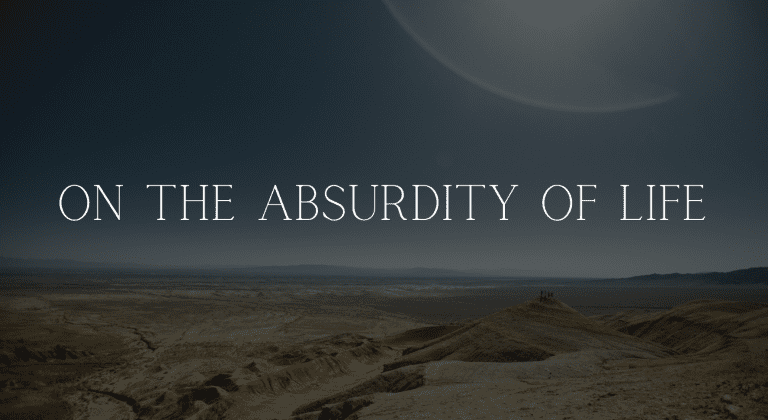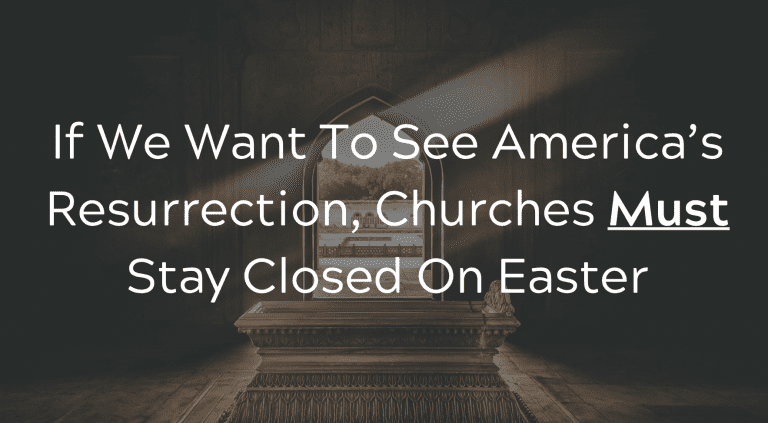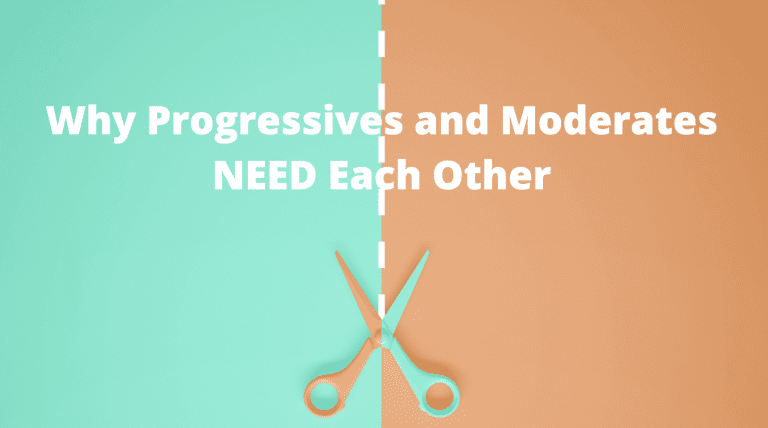If you grew up in a Baptist church like I did, then you know that Baptist’s like to eat. Any and every time  there is an occasion worth celebrating, a good Baptist church will call for a time of “fellowship”. All of the Baptists moms would go home to their kitchens and begin whipping up one of their favorite recipes, usually something quite unhealthy, but quite tasty. The morning of the “fellowship” an endless stream of women head downstairs with their foil-covered dishes, filling the church building with a variety of delectable scents. Throughout the entire church service, everyone sits on the edge of their pew as their stomachs grumble, waiting to sing that last hymn so that we can all go downstairs and finally get to eating. Once everyone is downstairs and has filled their plates with all of the food they could eat and feel like they weren’t sinning, the roar of laughter and conversation would fill the room. Hour after hour, church folks would sit around talking about everything and anything, genuinely enjoying the company of their friends. These times of fellowship are some of the sweetest memories I have from back in my Baptist days.
there is an occasion worth celebrating, a good Baptist church will call for a time of “fellowship”. All of the Baptists moms would go home to their kitchens and begin whipping up one of their favorite recipes, usually something quite unhealthy, but quite tasty. The morning of the “fellowship” an endless stream of women head downstairs with their foil-covered dishes, filling the church building with a variety of delectable scents. Throughout the entire church service, everyone sits on the edge of their pew as their stomachs grumble, waiting to sing that last hymn so that we can all go downstairs and finally get to eating. Once everyone is downstairs and has filled their plates with all of the food they could eat and feel like they weren’t sinning, the roar of laughter and conversation would fill the room. Hour after hour, church folks would sit around talking about everything and anything, genuinely enjoying the company of their friends. These times of fellowship are some of the sweetest memories I have from back in my Baptist days.
Food and eating have long been seen as tools for bonding together people. Since ancient times, sitting down and having a meal with friends and strangers has been seen as the primary way that we can build relationship with one another. The whole concept of each cooking something for each other, bringing it to the table to share, and enjoying the company of one another as you feast on the wide array of dishes has a way of disarming everyone at the table and allowing true fellowship to flow. It makes sense, then, that one of the earliest Christian rituals was a feast. Throughout Church history, this feast has come to be known by many different names. Some call it “The Lords Supper”, others “Communion”, still others “The Agape Feast”, but the name that is most commonly used to refer to this meal is “The Eucharist”. When this ritual was established by Jesus on the night of his betrayal and arrest, he told his disciples that every time they gathered for a meal, they should take bread and wine, break it and share it, “in memory of him”. Why did Jesus view this ritual as so essential? Why do we still practice it to this day?
Growing up as an evangelical, I never really got what the whole communion this was all about. I knew that it was commanded in scripture, so I understood why we did it. But for me, it was never particularly meaningful. Whenever I would take the elements- a tiny piece of Wonderbread and a sip of grape juice- I would picture Jesus dying on the cross and ask God to forgive me of my sins. Then, I’d eat the bread, drink the juice, and we would move on. It all seemed rather trivial. I knew that other Christians, like the Catholics, viewed this ritual as essential to worship, doing every single service, instead of once a month like my church did. But I didn’t understand why. What could be so important about this? Why did eating this sacred snack together have such a prominent place in the New Testament? What was Jesus really getting at? It wasn’t until I began to explore the ancient traditions of the Church that the importance of the Eucharist began to radically change the way I viewed Christianity altogether.
The earliest Christians were a people of rhythms. They used rituals and other fixed practices to help ground them in the faith and constantly remind them of the way of Jesus. The practice of the Eucharist became an essential part of the life of all disciples of Jesus from the very beginning because in it, two vital truths were communicated. The first was that at the Table of the Lord where the Eucharist was served, all people are equal. Women and men. Gentile and Jewish. Rich and poor. Sick and healthy. Old and young. When we gather at God’s table, we gather as one people, one body, united by the sacrifice of Jesus at the cross. We gather as one people, unified in the mist of our abundant diversity by our common allegiance to our one faith, one hope, and one Lord. The Eucharist was the great equalizer. For one moment of time, all of us stood on level ground. All our prejudices and biases were forced to fade into the background. We came together as one broken but connected body in need of grace.
The second truth that the Eucharist reminded early believers of was the pattern of life that they were to live as followers of Jesus. When they Christ commanded us to do this ritual “to remember and proclaim his death until he comes again”, he was asking us to remember the way of life that he lived and to follow therein. The cross of Christ served not only as the atonement for the sins of humanity, but also as the way in which all people should live our lives. On the cross, Jesus allowed his body to be broken open and his blood to be shed for the healing of the world. Through his gracious self-sacrifice, redemption and restoration became possible for the world. In the Eucharist, through the breaking of bread and the pouring of wine, we are reminded of Jesus’ sacrifice for our salvation. By participating in the Eucharist, eating the bread and drinking the wine, disciples unite themselves to the mission of God in Christ. We become one in Christ and one with Christ’s radical mission of redemption. At the Eucharist, Christians are reminded that the pattern by which we are to live is one of breaking ourselves open and pouring ourselves out for the redemption of the world. In other words, the Eucharist reminds us to live our lives as ministers of reconciliation, as living sacrifices, as members of the Body of Christ. The Eucharist reminds us of the mystery that the Spirit of God indwells us and has truly made us the hands and feet of Jesus to our world.
The reason that the Eucharist has held such a primary place in the life of the Church throughout the ages is because it is the singular place where we can come to receive grace, be united with God, and be sent out in to the world as God’s agents of redemption. The Eucharist provides a place for us to come with all of our baggage, drop it off, and be filled again with the Bread of Life and the Cup of Salvation. When we come away from the table each week, we can be confident of our standing before God. We can be confident that Christ’s life resides within us. That we have been made one with God and have been commissioned to be his power, person, and presence to our community, culture, and world. How many of us actually believe that? That we have been so filled with God’s Spirit, that we are truly one with Christ, agents of his redemptive work in the world? That we are co-conspirators with God in the renewal of all things. In the consummation of the Kingdom of God on earth as it is in heaven?
This radical notion of union with Christ has been lost in the Western Church today. We have forgotten what it looks like to be true disciple of Jesus. Perhaps, its because we have generally decentralized the place of the Eucharist in our Spiritual lives. Western Christianity has forgotten the truth of the incarnation, that God put on flesh in the person of Jesus and continues to re-incarnate himself in the hearts of his children. Instead, our faith has become increasingly gnostic, relying on knowledge about God instead of participation in God to be our salvation. When our faith becomes more about knowledge of God than about living as the presence of God to our world, we inevitably will shift away from crucial aspects of what it means to be a disciple of Christ, such as feeding the poor, healing the sick, setting the oppressed free, uplifting the marginalized, and the other justice-oriented aspects of Jesus life and teaching. When our faith is more focused on knowing theology about God instead of a deep, mystical union with God, demonstrated through the ritual of the Eucharist, we ultimately wander off of the path of true discipleship. The Eucharist is more than just a sacrament or a ritual. For Christians, it is a way of life. It is to be for us a constant reminder of our call to break ourselves open and pour ourselves out for the healing and redemption of the world. It is a practice that centers us on Jesus and his radical way of justice, it helps us to seek first the Kingdom of God and his righteous reign.
Since the earliest days of our faith, to be a Christian was to be committed to justice for all people. Yet, in recent times, many denominations of Christianity have moved to a place of intense opposition to such a teaching. Throughout most of my life of faith, I was fearful of any preacher who would preach about the importance of doing “justice”. In fact, I remember watching the Glenn Beck Show as a teenager and hearing Glenn urge conservative Christians to immediately leave any church whose preacher used the words “social justice” from the pulpit. These ideas of activism and justice were seen as liberal perversions of the Gospel. For some, the idea that doing acts of justice was a requirement of Christians seemed like a shift away from the Reformed teachings of salvation by grace alone, through faith alone, apart from works. For others, the opposition to social justice teachings was a reactionary position arising out of, yet again, the Fundamentalist/Modernist controversy of the early 20th Century. As “liberals” embraced science and began doubting the supernatural, a new emphasis was placed on the moral teachings of Christ. For some, the Gospel became not about supernatural salvation from sin or hell, but about building a better world through tangible acts of justice. This emphasis away from understanding Christ in supernatural terms and rendering him nothing more than a moral teacher was seen as a supreme heresy by those who began identifying as “Fundamentalists.”
Decades since the climax of this controversy, many Christians are still fearful of “social justice” language. Much of the teaching coming from evangelical pulpits today still places the primary emphasis on saving the souls of our world rather than feeding the hungry or caring for the environment. Dr. Al Mohler, the President of Southern Seminary, the largest evangelical seminary in the world, wrote concerning social justice:
“The church’s main message must be [the] Gospel. The New Testament is stunningly silent on any plan for governmental or social action. The apostles launched no social reform movement. Instead, they preached the Gospel of Christ and planted Gospel churches.”[1]
This sort of harsh reaction against any understanding of the Gospel that includes social action at its core is commonplace in many Christian communities today. But when we, through the Eucharist, are called back to the very heart of the Gospel, we see a radically different message. The cross of Jesus did, in fact, accomplish cosmic salvation for the world. On the cross, Jesus did atone for the sins of humanity. And that is good news. But it’s not the whole news. The cross simultaneously shows us the salvific love of God for humanity, while at the same time, calls us to go and do likewise. The cross is not only the place where we are to come to find forgiveness of our sins, but it is also the place where we go to understand how we are to live as disciples. If our Rabbi laid down his life for the redemption of the world, then we too must follow in his footsteps. And when Christians throughout the centuries came to the Lord’s Table to partake of the Eucharist, this is what they were reminded of. There, they received anew the grace and mercy of God. There they also were reminded of their union with Christ, filled with his body and blood, and sent to pour themselves out for the redemption of the world. This is what it means to be a disciple, a devotee, a follower of Jesus.
As I wrestled through these questions, I once again found myself drawn to the scriptures to seek guidance. If I wanted to know what it meant to be a follower of Jesus, it made sense to take some time to study what Jesus himself said. So, I opened up to the Gospel of Matthew and began to listen to the words of Jesus every day for a few months.
To my surprise, Jesus didn’t help me out one bit. At least not in the way I expected him to. Instead of solidifying the beliefs about what it looked like to be a Christian, Jesus only seemed to wear away the remaining presuppositions I had. When I read the words of Jesus, I found a message that was radically different from everything that I had come to believe to be true. Instead of focusing on right beliefs, Jesus called his disciples to live lives of radical justice and mercy to their friends, neighbors, and even enemies. In fact, it seemed that the people Jesus spent most of his time preaching against were those who held theological certainty as their highest value instead of engaging in social justice. As I read Jesus words, I heard him speaking to me. I was the Pharisee. I had wrapped my whole faith in having the “right” theology. I believed that those who put doing tangible acts of justice over teaching theology and preaching the Bible were going liberal and had abandoned the Gospel. But when I took time to focus on the words of Jesus, I began to discover just the opposite was true.
The Pharisees and teachers of the Law had the Torah down pat. They were rooted in the Bible. They advocated for right belief and adherence to Scriptural principles among the Jewish people. To me, they seemed to be excellent Christians. Yet, when Christ himself shows up on the scene and says: “Woe to you, scribes and Pharisees! For you lock people out of the kingdom of heaven. For you do not go in yourselves, and when others are going in, you stop them. You cross sea and land to make a single convert, and you make the new convert twice as much a child of hell as yourselves!” (Matthew 23:13-15) and “Woe to you, scribes and Pharisees! For you tithe mint, dill, and cumin, and have neglected the weightier matters of the law: justice and mercy and faith!” (Matthew 23:23) When Jesus speaks of salvation, he talks of it in term of those who do justice instead of those who and not in terms of those who have the correct theology and doctrine. Jesus seemed less concerned about whether his disciples were exemplary theologians and more concerned with whether or not they embodied grace, forgiveness, and peace to their neighbors, their enemies, and themselves.
Day after day, as I read through the Gospels, I found myself arguing with Jesus. Frankly, he seemed to have pretty watered-down faith. In fact, based on my understanding of what it meant to be a Christian, I don’t think Jesus would even come close to hitting the mark. As I began to think about the implications of that realization, I began to really wonder if perhaps I had believed a very faulty understanding of the Christian faith. There was obviously something very wrong with my understanding of Christianity Jesus himself wouldn’t be a part of it. It seemed to me that if I wanted to discover what exactly true Christianity was, I would have to start from scratch, beginning with Jesus’ teachings in the Gospels and work my way up from there. And as I began reformulating my faith based on Jesus, everything grew very uncomfortable.
According to the Gospels, Jesus is the word of God made flesh. God Almighty stepping out of his heavenly abode, putting on flesh and blood, and entering in to Creation. Or as Eugene Peterson put’s it in The Message, God “moved into the neighborhood.” (John 1:14 MSG) When God chose to become incarnate, he didn’t chose to be born in a palace of gold as the child of royalty. No, when God chose to come to earth, he came in the form of a peasant- a child born into the most undignified circumstances. The incarnation of God is the first and highest of all sacraments- or “scared mysteries”. In it, God demonstrates to humanity how we ought to live. Being willing to step out of our places of comfort, privilege, and power, into undignified and uncomfortable circumstances. Being willing to lose our lives for the sake of gaining eternal life. Being willing to give it all away in order to gain the Kingdom. These are the mysteries that comprise the heart of Christ’s message. And by the time we arrive at the end of the Gospel narrative, we find Christ instituting the ritual we have come to know as the Eucharist.
But more than anything, the Eucharist, like the incarnation, is meant to be a pattern of life in which we live. One of the reasons the early Christians were so adamant about partaking of the Eucharist is because it reminded them of the rhythm that they were supposed to live their lives in step with. The pattern of breaking open our bodies and pouring out our lives for the redemption and healing of the world. Is this not the example that Christ left for us? Is this not what Christ has called us to do? When we gather at the communion table, all of our other identities fall to the background. We come as one body, the Body of Christ, God’s incarnations on earth as in heaven. When we partake of the elements of bread and wine, we are mysteriously united to Christ, filled and nourished, ready to be sent out into the world to break our own bodies open and pour our selves out to the poor, the oppressed, the sinful, and the marginalized. The Eucharist reminds us that Christ’s sacrifice is for all people and that we have been commissioned to take that sacrifice- in message and in deed- to the world. We come to the table to be recalibrated, reminded, and rejuvenated so that we may go to the ends of the earth as ambassadors and incarnations of Jesus.
The ritual of the Eucharist provides the image of what it looks like to be a Christian. Beyond having the right answers or believing the right things about God, being a Christian is first and foremost about following Christ. About being filled with the Spirit of God, and allowing ourselves to be broken and poured out in the world. The Eucharistic life beckons us to do justice and to sacrifice ourselves. When we begin to view the life of disciples of Christ through the lens of the Eucharist, many other teachings throughout the new testament become clear. For instance, when the Apostle Paul tells us to “to offer [our] bodies as a living sacrifice, holy and pleasing to God–this is [our] true and proper worship.” (Romans 12:1 NIV), he is directly paralleling the example of Christ as demonstrated through the Eucharist. This command isn’t simply instructing us to be pure and pious. Instead, it is a command to do justice. Paul parallels the words of the Prophet’s Isaiah and Micah who describe “true and proper worship” as “Free the people you have put in prison unfairly and undo their chains. Free those to whom you are unfair and stop their hard labor. Share your food with the hungry and bring poor, homeless people into your own homes. When you see someone who has no clothes, give him yours, and don’t refuse to help your own relatives.” (Isaiah 58:6-7 NCV) and “You say, “What can I bring with me when I come before the Lord, when I bow before God on high?….The Lord has told you, human, what is good; he has told you what he wants from you: to do what is right to other people, love being kind to others, and live humbly, obeying your God.” (Micah 6:6-8 NCV) The pleasing sacrifice that Paul is speaking of is the sacrifice of our lives in service of one another. The only worship and fasting God desires from us is to give of ourselves to heal the world. This is what Jesus did his entire life. This is what Jesus did in his death. And this is what Jesus continues to do through the hands and feet of his disciples around the world.
To be a Christian is to live a Eucharistic life. It is to come to the table where we are all equal, brothers and sisters made in the image and likeness of God. It is recognize and live into our status as children of God, united with Christ, and transformed into his literal body on the earth. It is also to live in such a way that we are constantly giving of ourselves to the world. Pouring out our lives for the poor, marginalized, and oppressed. To live a Eucharistic life is to live a life centered on Jesus and his Gospel. To live a life where we seek the expansion of the Kingdom of God through one subversive act of love at a time. We have been called to be the power, person, and presence of Christ to our world. This is what we are reminded of when we come to the table together.
[1] Dr. Albert Mohler, Glenn Beck, Social Justice, and the Limits of Public Discourse, http://www.albertmohler.com/2010/03/15/glenn-beck-social-justice-and-the-limits-of-public-discourse/











